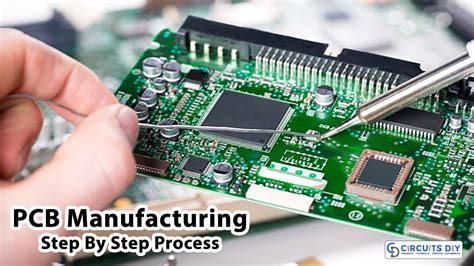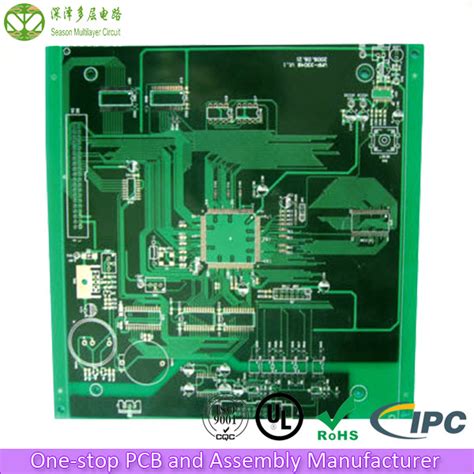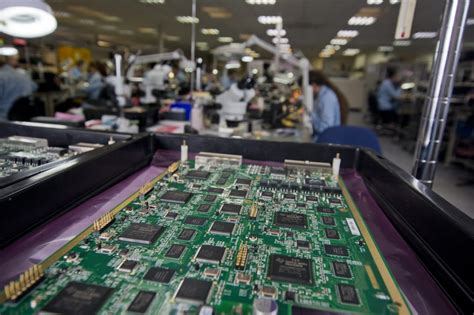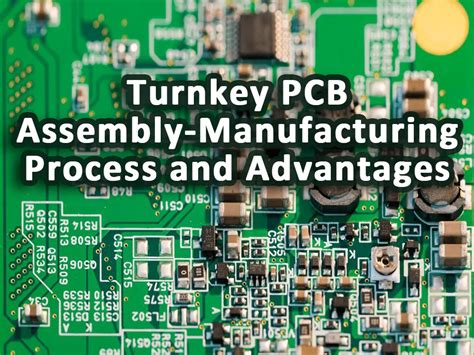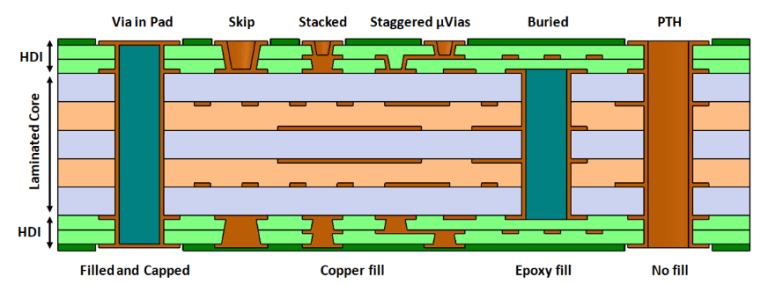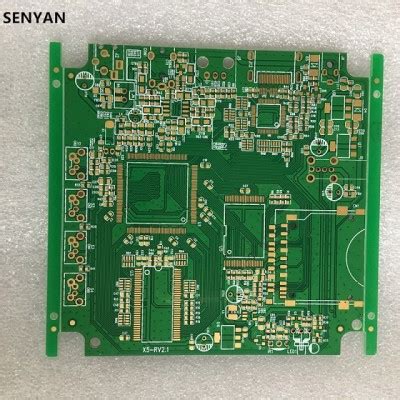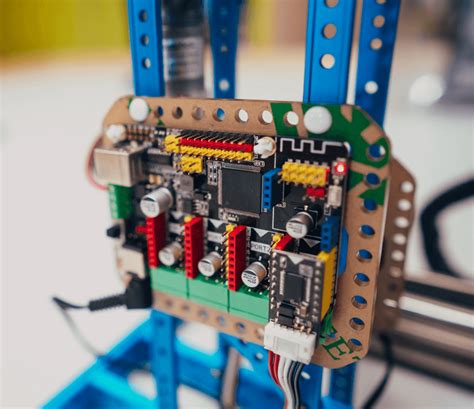Expert PCB Fabrication from Prototype to Full Production
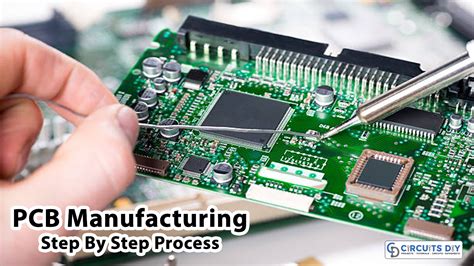
Key Takeaways
When selecting a PCB manufacturing partner, understanding their capabilities across industries ensures your project’s success Leading PCB manufacturing companies specialize in everything from aerospace-grade boards to high-volume IoT device production, balancing precision with scalability For example, ITAR-compliant facilities are critical for defense or aerospace applications, while medical-grade certifications guarantee compliance with stringent safety standards
A key consideration is PCB manufacturing cost, which varies based on design complexity, material selection, and turnaround times Prototyping phases often involve higher per-unit expenses, but partnering with a full-service provider like Andwin PCBA can streamline transitions to mass production, optimizing long-term budgets
Tip: Early DFM (Design for Manufacturability) analysis reduces costly redesigns Collaborate with your manufacturer during the design phase to identify potential issues like trace spacing or thermal management
The PCB manufacturing business thrives on adaptability—whether you need 24/7 support for urgent deadlines or specialized materials for harsh environments For IoT devices, rapid prototyping paired with scalable solutions ensures faster time-to-market, while advanced testing protocols (e.g., impedance control or automated optical inspection) minimize failure risks
Finally, prioritize partners offering end-to-end services—from prototyping to final assembly—to maintain consistency and quality This approach not only simplifies logistics but also ensures compliance with industry-specific standards at every stage
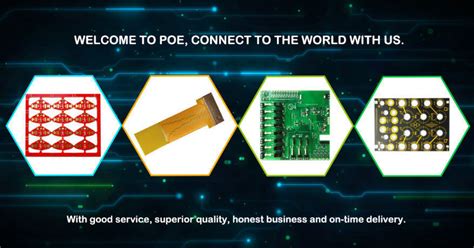
PCB Fabrication Solutions for Aerospace Applications
When selecting PCB manufacturing companies for aerospace systems, you need partners capable of meeting extreme performance thresholds Aerospace applications demand PCBs that withstand temperature fluctuations, radiation exposure, and mechanical stress while maintaining signal integrity Leading PCB manufacturing providers address these challenges through specialized materials like polyimide substrates and high-temperature laminates, coupled with rigorous testing protocols such as thermal cycling and vibration analysis
For instance, ITAR-compliant facilities ensure sensitive aerospace designs remain secure throughout production—a non-negotiable for defense-related projects These facilities often integrate advanced DFM analysis to preemptively identify layout flaws that could compromise reliability in critical environments Below is a comparison of material options commonly used in aerospace PCB fabrication:
| Material Type | Temperature Range | Signal Loss (GHz) | Key Application |
|---|---|---|---|
| FR-4 Standard | -50°C to 110°C | 002 | Non-critical subsystems |
| Polyimide | -269°C to 260°C | 001 | Avionics, satellites |
| PTFE (Teflon) | -200°C to 260°C | 0005 | Radar/RF communication |
Balancing PCB manufacturing cost with performance is essential While aerospace-grade materials increase upfront expenses, they reduce long-term risks of field failures Reputable PCB manufacturing businesses optimize this balance by offering scalable solutions—from low-volume prototyping to full production—ensuring compliance with standards like IPC-6012 Class 3 and AS9100
Timely support is another critical factor Providers with 24/7 engineering teams enable rapid design adjustments, crucial for meeting tight launch schedules without sacrificing quality This end-to-end agility ensures your aerospace projects transition seamlessly from prototype validation to mission-ready deployment
By prioritizing these elements, you align with partners capable of delivering PCBs that meet the precision, durability, and security demands of modern aerospace systems—laying a foundation for success in adjacent sectors like medical or IoT device production
Rapid Prototyping to High-Volume PCB Production
When developing electronic systems, the journey from concept to market-ready products demands a seamless transition between prototyping and full-scale manufacturing Leading PCB manufacturing companies bridge this gap by offering agile prototyping services that accelerate design validation while maintaining pathways for scalable production Modern PCB manufacturing workflows now integrate rapid-turn prototypes (often within 24–48 hours) with automated processes optimized for high-volume output, ensuring design consistency across batches
For startups and enterprises alike, managing PCB manufacturing cost hinges on selecting partners capable of balancing speed, quality, and scalability Advanced manufacturers employ unified design-for-manufacturability (DFM) frameworks, allowing you to refine prototypes iteratively while preemptively addressing production bottlenecks This approach minimizes costly redesigns, as PCB manufacturing business experts validate materials, layer stacks, and thermal management strategies early in the development cycle
As projects scale, dual-track manufacturing models enable parallel prototyping of next-gen designs alongside volume production of current iterations This is particularly critical for industries like aerospace or IoT, where evolving standards require continuous innovation without disrupting supply chains Trusted providers leverage ITAR-compliant infrastructure and just-in-time inventory systems to synchronize low-volume prototype builds with high-volume orders, maintaining traceability and compliance at every stage
The shift to mass production introduces unique challenges—component sourcing, yield optimization, and testing protocols—that PCB manufacturing specialists mitigate through data-driven process controls By analyzing historical prototype data, manufacturers predict failure points, adjust tolerances, and optimize panelization layouts to reduce waste This proactive stance not only stabilizes PCB manufacturing cost but also ensures zero-defect transitions when moving from prototype validation to full-scale assembly
Ultimately, partnering with a PCB manufacturing company that masters both prototyping agility and production rigor ensures your designs meet time-to-market pressures without compromising reliability—whether you’re producing 50 units or 50,000
ITAR-Compliant Manufacturing for Secure PCB Assembly
When sourcing PCB manufacturing services for defense, aerospace, or other sensitive applications, compliance with International Traffic in Arms Regulations (ITAR) isn’t optional—it’s a non-negotiable requirement PCB manufacturing companies operating under ITAR mandates must adhere to rigorous protocols to safeguard classified data, restrict foreign access, and ensure traceability across every production stage This level of security begins with facility controls: restricted personnel access, encrypted design file transfers, and audit-ready documentation practices
For projects involving military or satellite systems, choosing an ITAR-registered partner eliminates risks associated with unauthorized third-party exposure These providers implement closed-loop manufacturing processes, where boards are fabricated, assembled, and tested within controlled environments Advanced measures like biometric authentication for technicians and tamper-evident packaging further prevent intellectual property breaches While PCB manufacturing cost may rise slightly due to these protocols, the investment ensures compliance with U.S export laws and mitigates penalties that could far exceed initial savings
ITAR compliance also impacts material selection and supply chain transparency Trusted PCB manufacturing business partners vet component suppliers to avoid counterfeit parts and maintain full visibility into material origins—critical for applications requiring MIL-SPEC or NASA-grade reliability Additionally, ITAR-aligned DFM (Design for Manufacturing) reviews address potential vulnerabilities early, such as layer stackup configurations that could expose sensitive circuitry
Transitioning to high-volume production? ITAR-certified facilities scale securely, combining automated assembly lines with partitioned workflows to isolate defense projects from commercial orders This dual approach maintains efficiency without compromising confidentiality Whether prototyping a missile guidance system or mass-producing encrypted communication devices, partnering with an ITAR-compliant manufacturer ensures your designs meet both technical and regulatory benchmarks seamlessly
24/7 PCB Fabrication Support for Critical Timelines
When your project hinges on uncompromising deadlines, partnering with PCB manufacturing companies that provide round-the-clock fabrication support becomes non-negotiable Unlike traditional operations limited by business hours, advanced PCB manufacturing facilities leverage automated workflows and strategically distributed teams to maintain continuous production cycles This ensures that design revisions, material shortages, or sudden scaling demands never derail your timeline—whether you’re iterating prototypes or transitioning to high-volume batches
For industries like aerospace or medical devices, where delays can cascade into compliance risks or missed market windows, 24/7 capabilities transform PCB manufacturing cost from a budgetary constraint into a strategic advantage Real-time communication channels allow engineers to address issues like impedance mismatches or thermal management as they arise, minimizing rework cycles Moreover, synchronized logistics networks ensure components move seamlessly from fabrication to assembly, even during off-peak hours
The operational backbone of a reliable PCB manufacturing business lies in its ability to balance speed with precision Automated optical inspection (AOI) systems and IoT-enabled machinery operate uninterrupted, catching defects early while maintaining traceability for audits This approach not only accelerates turnaround but also reduces long-term risks—critical when producing mission-critical boards for defense or industrial IoT applications
By integrating 24/7 support into their service models, forward-thinking manufacturers empower you to compress development phases without sacrificing quality Whether adapting to last-minute design changes or expediting compliance testing, continuous production readiness ensures your project stays aligned with evolving requirements In sectors where timelines dictate success, this level of responsiveness transforms PCB manufacturing from a transactional service into a collaborative partnership
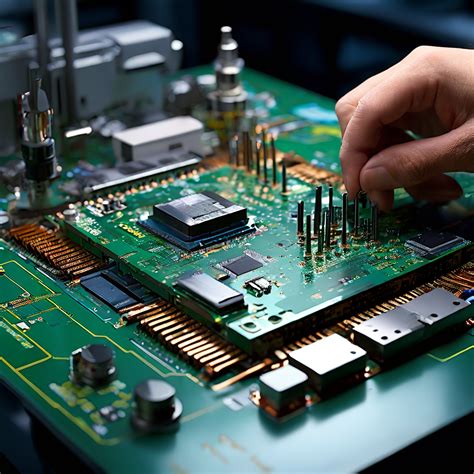
Advanced DFM Analysis for Reliable PCB Designs
When partnering with a PCB manufacturing provider, design for manufacturability (DFM) analysis isn’t just a checkbox—it’s the backbone of ensuring your board performs as intended Advanced DFM tools scrutinize every layer, via, and component placement to identify potential flaws before production begins This proactive approach minimizes costly redesigns, reduces PCB manufacturing cost, and accelerates time-to-market—critical factors whether you’re iterating prototypes or scaling to high volumes
Leading PCB manufacturing companies leverage AI-driven algorithms to simulate thermal stress, signal integrity, and mechanical tolerances under real-world conditions For example, in aerospace or medical applications, even micron-level deviations can compromise safety By analyzing material properties and stack-up configurations early, engineers optimize layouts for EMI shielding or high-frequency performance, ensuring compliance with industry-specific standards
What sets expert providers apart is their ability to balance technical rigor with practical insights They’ll flag issues like insufficient copper balancing or improper pad sizes—common oversights that lead to field failures—while suggesting alternatives that align with your PCB manufacturing business goals This collaborative process not only refines your design but also educates your team on cost-efficient practices, such as panelization strategies to minimize material waste
For IoT devices or compact medical electronics, where space constraints demand precision, DFM ensures components fit seamlessly without sacrificing functionality Advanced tools even predict how manufacturing variances—like etching tolerances or solder mask alignment—might impact yield rates, allowing preemptive adjustments
By integrating DFM into every stage, from prototyping to full-scale production, you mitigate risks that could derail timelines or inflate budgets It’s a strategic investment that transforms complex designs into reliable, manufacturable solutions—key to maintaining competitiveness in fast-paced industries
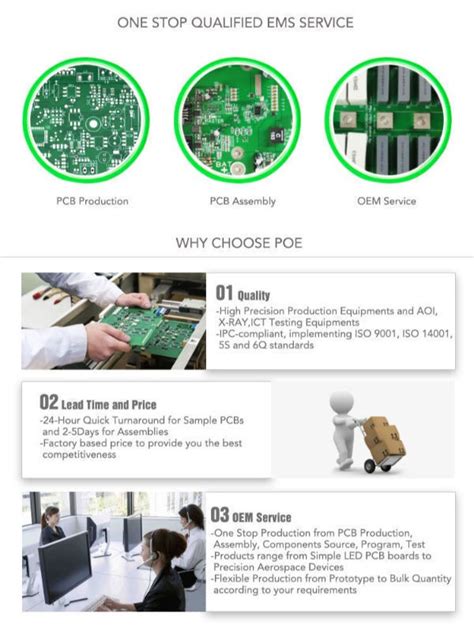
Medical-Grade PCB Manufacturing Precision Standards
When designing printed circuit boards for medical devices, precision isn’t just a preference—it’s a non-negotiable requirement Medical-grade PCB manufacturing demands adherence to stringent quality protocols, from material selection to final inspection Unlike consumer electronics, medical PCBs often operate in environments where failure could jeopardize patient safety, making traceability, biocompatibility, and error-free performance critical
Leading PCB manufacturing companies prioritize certifications like ISO 13485 and IEC 60601, which govern design controls, risk management, and sterilization compatibility For instance, implantable devices require substrates that resist bodily fluids, while diagnostic equipment PCBs must maintain signal integrity in high-frequency applications This level of specialization often impacts PCB manufacturing cost, but it ensures compliance with FDA regulations and reduces long-term liability risks
To achieve this, manufacturers employ advanced processes such as automated optical inspection (AOI) and X-ray testing to detect micro-defects invisible to the naked eye Layer-to-layer registration tolerances are tightened to ±2 mils or less, and solder mask application follows IPC Class 3 standards to prevent dendrite growth or short circuits For high-density interconnects (HDIs), laser-drilled microvias ensure reliable connections in compact designs, which is essential for wearable monitors or surgical robotics
When evaluating a PCB manufacturing business for medical projects, verify their cleanroom protocols and material traceability systems Even minor contaminants or batch inconsistencies can compromise device functionality Additionally, thermal management becomes critical in applications like MRI machines or infusion pumps, where temperature fluctuations affect component longevity
By partnering with experts who understand these nuances, you ensure your medical PCBs meet both technical and regulatory benchmarks—without sacrificing scalability Whether prototyping a new biosensor or scaling production for patient monitoring systems, precision-focused PCB manufacturing lays the foundation for devices that save lives and inspire trust
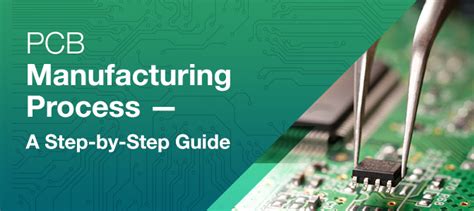
IoT Device PCB Production with Fast Turnarounds
When developing IoT devices, pcb manufacturing timelines often become a critical bottleneck You need partners who understand the balance between speed and precision, especially when dealing with compact, high-density designs common in smart sensors, wearables, or connected infrastructure Leading pcb manufacturing companies address this by integrating automated workflows and real-time monitoring systems, slashing production cycles without compromising on signal integrity or thermal performance
A key advantage lies in design-for-manufacturability (DFM) optimizations tailored for IoT applications For instance, reducing layer counts through advanced routing techniques can lower pcb manufacturing cost while maintaining functionality—a crucial factor for scalable deployments However, accelerating timelines doesn’t mean cutting corners Rigorous testing protocols, such as impedance control checks and IoT-specific EMI/EMC validation, ensure boards perform reliably in dense wireless environments
To stay competitive in the pcb manufacturing business, suppliers now offer tiered turnaround options A 5-day prototype service might suit early-stage validation, while 2-week high-volume production aligns with market-ready launches This flexibility becomes vital when iterating designs based on field data or adapting to shifting IoT standards like LPWAN or Matter compliance
Material selection further influences outcomes High-frequency laminates or low-loss substrates may add marginally to costs but prevent signal degradation in long-range IoT networks Partnering with manufacturers who provide real-time yield analytics helps you make informed trade-offs between performance, durability, and pcb manufacturing cost—a strategic edge in markets where even minor delays impact product viability
By aligning with specialists in IoT-ready fabrication, you gain access to technologies like laser-drilled microvias or embedded component assemblies, which are becoming standard for energy-efficient designs These capabilities, combined with transparent communication channels, ensure your boards meet evolving connectivity demands without sacrificing speed-to-market imperatives
End-to-End PCB Services from Prototype to Market
Navigating the journey from concept to finished product requires a partner that bridges PCB manufacturing expertise with scalable execution Leading PCB manufacturing companies streamline this process by integrating design validation, prototyping, and volume production under one roof, eliminating fragmented workflows When you collaborate with a full-service provider, design for manufacturability (DFM) checks are embedded early, identifying potential flaws before prototyping begins This proactive approach reduces PCB manufacturing cost by minimizing material waste and avoiding costly redesigns later
For prototypes, advanced fabrication technologies like laser drilling and HDI stacking ensure your design meets exact specifications, while automated optical inspection (AOI) guarantees consistency As demand grows, these same systems scale seamlessly into high-volume production, maintaining tolerances as tight as ±2 mils for mission-critical applications The best partners also offer supply chain integration, sourcing components directly to accelerate timelines—a crucial advantage when balancing speed and precision in competitive markets
Understanding PCB manufacturing business dynamics is key to optimizing outcomes Transparent pricing models, such as cost-per-unit breakdowns, help you forecast expenses accurately, whether producing 50 units or 50,000 Additionally, ITAR-compliant facilities and NIST-certified processes ensure intellectual property protection, which is non-negotiable for aerospace or defense projects By aligning with a partner that handles everything from thermal management simulations to final compliance testing, you gain a single point of accountability, reducing administrative overhead and accelerating time-to-market
This holistic approach not only safeguards quality but also future-proofs your operations For example, IoT device makers benefit from flexible scaling—rapid prototyping for initial field tests, followed by on-demand production ramps as adoption grows Similarly, medical device developers leverage end-to-end traceability to meet FDA audit requirements without delaying launches By prioritizing collaboration over transactional relationships, top-tier PCB manufacturing providers become extensions of your engineering team, delivering solutions that align with both technical and business objectives
Conclusion
When navigating the complexities of PCB manufacturing, selecting the right partner can define the success of your project Reputable PCB manufacturing companies prioritize not only technical expertise but also align their processes with your specific needs—whether you’re iterating prototypes or scaling to full production A critical factor to evaluate is PCB manufacturing cost, which should reflect value rather than just upfront expenses Cost-effective solutions emerge when suppliers integrate advanced design-for-manufacturability (DFM) analysis, minimize material waste, and optimize assembly workflows
For businesses in regulated sectors like aerospace or medical devices, compliance and precision are non-negotiable ITAR-certified facilities and adherence to medical-grade standards ensure that your PCB manufacturing business meets stringent industry requirements without compromising turnaround times Meanwhile, IoT innovators benefit from agile production models that adapt to rapid design changes while maintaining reliability across high-volume batches
Ultimately, the goal is to forge a partnership that scales with your ambitions From prototyping to market-ready solutions, the right manufacturer becomes an extension of your team—delivering 24/7 support, transparent communication, and robust quality assurance By prioritizing PCB manufacturing partners who balance technical rigor with operational flexibility, you secure a foundation for long-term growth in competitive industries
Frequently Asked Questions
How do PCB manufacturing companies ensure quality control for aerospace applications?
Leading PCB manufacturing providers implement multi-stage inspection protocols, including automated optical inspection (AOI) and X-ray testing For ITAR-compliant projects, they maintain segregated production lines with biometric access controls, ensuring compliance with aerospace-grade reliability standards
What factors influence PCB manufacturing cost for medical devices?
Precision requirements, material selection (such as high-frequency laminates), and ISO 13485 certification processes directly affect pricing Medical-grade PCB manufacturing often involves laser-drilled microvias and impedance-controlled routing, which require specialized equipment and extended testing cycles
Can PCB manufacturing business partners handle both prototyping and mass production?
Yes, full-service providers offer scalable solutions from 5-piece prototypes to 100,000+ unit batches Advanced PCB manufacturing companies use unified design files and cross-functional teams to maintain consistency across production phases while optimizing PCB manufacturing cost through shared tooling setups
How do IoT-focused PCB manufacturing services accelerate time-to-market?
Providers specializing in IoT employ concurrent engineering practices, combining rapid prototyping with wireless certification testing Their PCB manufacturing business models often include on-demand inventory management and panelization strategies to reduce lead times by up to 40% compared to traditional workflows
What certifications should I verify when choosing PCB manufacturing companies?
Prioritize partners with ITAR registration, ISO 9001:2015, and UL certification For medical or automotive applications, confirm IATF 16949 or FDA-compliant quality systems Reputable PCB manufacturing firms transparently share audit reports and supply chain documentation
Ready to Optimize Your PCB Project?
For tailored solutions that align with your PCB manufacturing cost and technical requirements, please click here to consult our engineering team at https://wwwandwinpcb.com/pcb-manufacturing/

